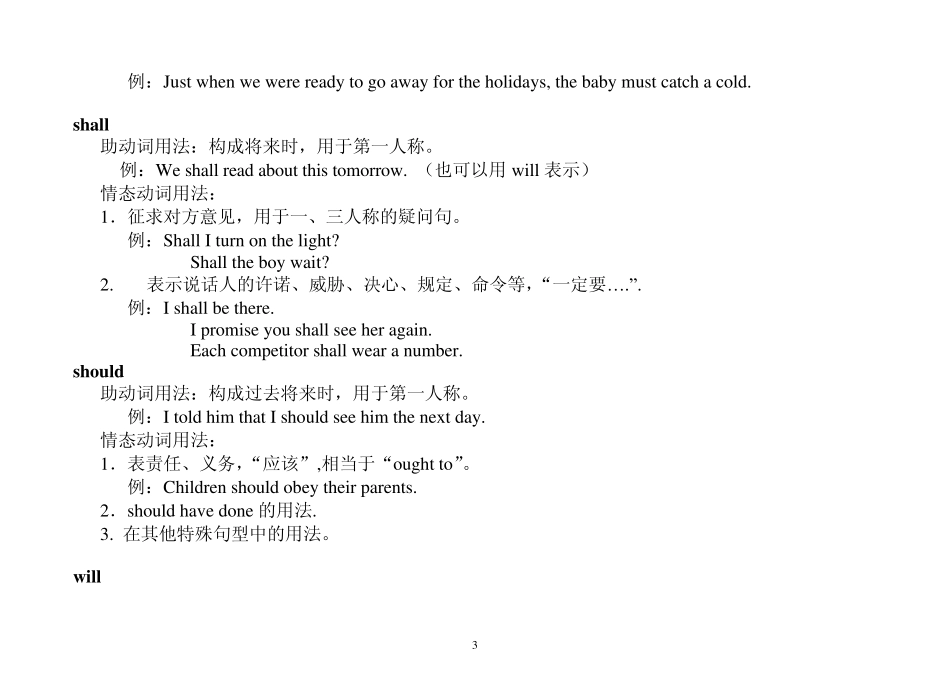1 情态动词主要用法总结 can / could 1. 表能力: 例:Can you type? She could run and was a good player. 2. 表允许, “可以”。 例:Can I come in? He said we could go to the shop for sweets. could 比 can 语气更委婉。也可以用 “may”. 3. 表猜测,多用于疑问或否定句。 例:Can it be true? He can’t be more than thirty. Where could he have gone? 4. 虚拟语气中用could. 例:If you tried, you could do that work. 5. 表一时的情况, “有时候会… ..” 例:Children can be very annoying. Our house is on the top of the hill, and in winter the winds can be very cold. may / might 1. 表许可或征求同意, “可以”。 2 例:May / Might I leave? You may bring them back tomorrow. 2. 表可能性, “可能,或许”。 例:He may not be there. He thought it might be wise to try his luck there. You may/might have read some account of the matter. 3. 虚拟语气中用might. 例:If you didn’t mind, we might go there. If it had not been for you, I might not have understood. 4. may 表祝愿。 例:May you be happy! May God bless you! mu st 1. “必须,一定要”。 例:You must see the doctor. 2. 表猜测,“一定… ..”。 例:Judging by the smell, the food must be good. He must have arrived by air. He must be working hard. 3. 表客观必然、不可避免, “必然会,肯定会”. 例:All men must die. 4. 表说话人的不耐烦或令人不快的事,“偏要,偏偏”。 3 例:Just when we were ready to go away for the holidays, the baby must catch a cold. shall 助动词用法:构成将来时,用于第一人称。 例:We shall read about this tomorrow. (也可以用will 表示) 情态动词用法: 1.征求对方意见,用于一、三人称的疑问句。 例:Shall I turn on the light? Shall the boy wait? 2. 表示说话人的许诺、威胁、决心、规定、命令等,“一定要….”. 例:I shall be there. I promise you shall see her again. Each com...


